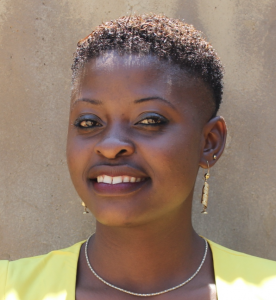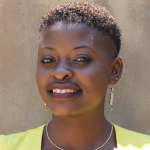There are 475 students and 20 staff members at Fuvale Primary School. Every day they must face the reality that without significant effort, they will not have sufficient water to meet their daily needs. And sadly, the water they work so hard to collect may very likely make them sick with water-related illnesses since none of it is collected from protected sources.
Students pull water from the school's dug well using a bucket on a rope, but it is not an ideal water source. Even though the well is deep, it dries yearly when not in the rainy season. The well is open, which creates a couple of issues. First, it is vulnerable to all sorts of contamination, and secondly, restrictions must be placed on who can collect water since it is too risky for young children to be near the open hole.

"The current state affects me more on my academics. Drawing water early in the morning makes me tired and not able to concentrate in class. It is very hard to pull up the container from the well. This does not happen once or twice because we are many, and alot of water is needed in the school," said 12-year-old Bovin S., shown above, helping pull water up from the school's well.
For most of the year, students have to resort to an alternative water source, the local river, but it is a risky and time-consuming endeavor.

"The river is not only far from the school, but it is insecure for the pupils to go alone; thus [they] need the accompaniment of a teacher. It is also not very clean and safe for drinking because it is not protected," said field officer Jemmimah Khasoha.
Jemmimah continued, "All these efforts of getting water to school for drinking, cooking, and cleaning make the pupils and teachers waste alot of time which should be used for academics and co-curricular activities."
Forty-eight-year-old teacher Joseph Wamba (shown below) agreed with Jemmimah and noted that the water also stresses him in other ways. "The current state of lack of water throughout the school calendar affects me both medically and professionally. Medically I have been treating typhoid, which was caused by the water. So to stop spending on drugs, I carry water from home, which is draining and tiresome. Professionally it makes us as teachers not to complete [the] syllabus on time which makes the pupils [do] very bad in their academics."

"One of the reported health consequences of using this water is typhoid and stomachaches. This is because the water is not treated before use. The other negative effects are absenteeism, poor performance, and uncleanliness both of the pupils and the facilities in the school," concluded Jemmimah.
Installing a well on the school campus will make it possible for students to quickly and safely collect all of the water they need and still attend to the primary purpose of being at school. Hopefully, with access to plenty of safe water to consume, everyone's health will improve, and they will have more energy to pour into learning.
Water at schools is unique, which is why we need unique solutions.
The Proposed Solution, Determined Together...
At The Water Project, everyone has a part in conversations and solutions. We operate in transparency, believing it benefits everyone. We expect reliability from one another as well as our water solutions. Everyone involved makes this possible through hard work and dedication.
In a joint discovery process, community members determine their most advantageous water solution alongside our technical experts. Read more specifics about this solution on the What We're Building tab of this project page. Then, community members lend their support by collecting needed construction materials (sometimes for months ahead of time!), providing labor alongside our artisans, sheltering and feeding the builders, and supplying additional resources.
Water Access for Everyone
This water project is one piece in a large puzzle. In Kenya, Sierra Leone, and Uganda, we're working toward complete coverage of reliable, maintained water sources that guarantee public access now and in the future within a 30-minute round trip for each community, household, school, and health center. One day, we hope to report that this has been achieved!
Training on Health, Hygiene & More
With the community's input, we've identified topics where training will increase positive health outcomes at personal, household, and community levels. We'll coordinate with them to find the best training date. Some examples of what we train communities on are:
- Improved hygiene, health, and sanitation habits
- Safe water handling, storage & treatment
- Disease prevention and proper handwashing
- Income-generation
- Community leadership, governance, & election of a water committee
- Operation and maintenance of the water point
Handwashing Stations
Alongside each water source, we also provide two new gravity-fed handwashing stations that will allow everyone at the school to wash their hands without running water. Handwashing is so important to help prevent future water-related illnesses in the school community.
The student health club will maintain the stations, fill them with water, and supply them with soap (which we will teach the school community how to make during the training!).
VIP Latrines
In addition, we will construct two triple-door Ventilated Improved Pit (VIP) latrine blocks designed to prevent fecal disease transmission. Each latrine will have a cement floor, which is easy to use and clean regularly. Three doors will serve the girls, and three doors will serve the boys.

 Borehole Well and Hand Pump
Borehole Well and Hand Pump
 Rehabilitation Project
Rehabilitation Project



































